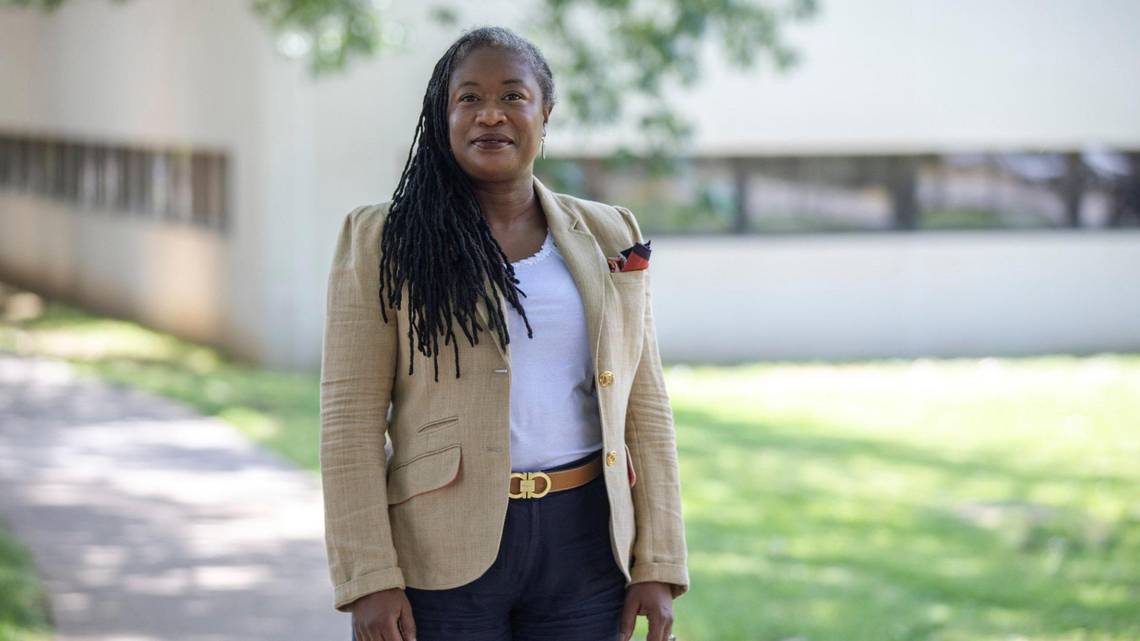COVID-19 toll in black community no surprise to UK researcher. Racism ‘embedded’ in healthcare.
Read more here: https://www.kentucky.com/opinion/linda-blackford/article243393036.html#storylink=cpy
BY LINDA BLACKFORD
Not long after coronavirus appeared on our shores, we learned about its capricious nature, sometimes manifesting as a head cold, sometimes as a lethal disease. As the count went up, public health experts soon reported that a disproportionate number of the worst COVID-19 deaths were in the Black community.
For example, Blacks make up 13 percent of the U.S. population and 23 percent of reported deaths. In Kentucky, Black deaths are up to 17 percent in a state where Blacks are just 8 percent of the population.
And Anita Fernander is not surprised.
“It’s long been said that when white America gets a cold, the African American community gets pneumonia,” said Fernander, a Ph.D. researcher at the University of Kentucky who has devoted most of her professional life to studying racial health disparities.
She came to Kentucky in 2002, when there was a lot of talk about “Kentucky uglies,” in health, such as high smoking and cancer rates, but it was mostly focused on Eastern Kentucky. Fernander instead looked at smoking in the African-American population, which smoked at lower rates but had higher rates of smoking-related illness. She surmised that it was related to the fact that tobacco companies for years marketed menthol products intensively in Black communities.
After a few years and trouble getting some of her minority studies funded, she started looking at more foundational issues on health disparities.
“The more I read, the more I understood it started with chattel slavery and how medical services were and were not provided to slaves, how slaves were treated, access to food ... using biology to define race and then dehumanizing African Americans,” Fernander said. “Over centuries and decades, I saw how government and social policies have influenced health outcomes among African Americans, and racism is embedded in all of that.”
It didn’t stop with slavery. Legal segregation and redlining by banks meant Black communities had fewer parks or amenities, were more exposed to environmental degradation, and faced the kinds of daily indignities and fear that triggered enough stress for hypertension and heart problems. Lower economic status meant less access to healthcare systems that may not have been welcoming in the first place.
Fernander founded the Lexington-Fayette County Health Disparities Coalition, to engage a wide range of people across the community to address the issues. But having an appointment in the College of Medicine also got her thinking about how we train healthcare professionals to take care of marginalized communities.
A term called “cultural humility” was coined in the 1980s, and it seemed to Fernander to make more sense than cultural sensitivity because “being culturally humble is a commitment to a lifelong learning process,” she said. “It’s about being open to other people and learning about other people. “Not only do we need to train clinicians in cultural humility, we need to increase diversity of our healthcare workforce so we can address these inequities.”
Fernander is now teaching a course to all first year medical students about cultural humility in interviewing and social determinants of health; she also teaches two electives: “Race, Racism and Health Disparities among Blacks in the U.S.” and “The History of Medicine among Blacks in the U.S.: Implications for Health Disparities.”
The energetic researcher is also continuing community work. Although the number of black women physicians has continued to rise, the number of Black male doctors is alarmingly low. Fernander has now joined forces with Roz Akins at the Black Males Working Academy to get more Black males into healthcare. She’s actively trying to find sponsors and funding for the first Black Men in White Coats Youth Summit here in Lexington on Feb. 6, 2021 for youth ages 8-25 who are interested in a career in medicine.
Fernander hopes we might be at a unique moment brought to us by two pandemics —COVID-19 and embedded racism brought to the forefront by police brutality —where white society can finally recognize what she and so many of her colleagues have understood for years about healthcare. That’s why she was pleased by Gov. Andy Beshear’s announcement that his administration would make sure all Black Kentuckians have access to health insurance, which showed action rather than rhetoric.
“For those in our Commonwealth who don’t understand why the focus is on the Black population, it is clear that they lack knowledge and understanding as to the historical and contemporary racist structures and systems put in place that have created a health crises among African Americans,” she said. “We just request of those in power to create tangible, efficient, and effective strategies and actions to correct centuries of wrong. Making sure all African Americans have health insurance takes nothing away from anyone. It simply means creating environments, circumstances, and situations where we all have the same opportunity and rights.”
